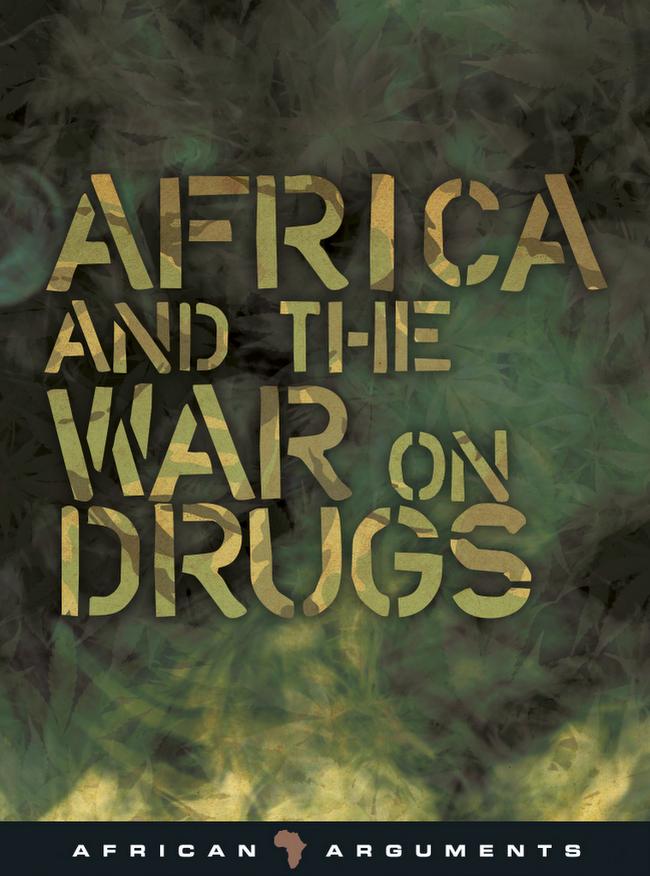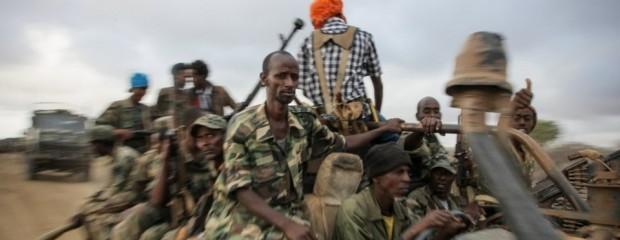
Debating Ideas is a new section that aims to reflect the values and editorial ethos of the African Arguments book series, publishing engaged, often radical, scholarship, original and activist writing from within the African continent and beyond. It will offer debates and engagements, contexts and controversies, and reviews and responses flowing from the African Arguments books.

The death of Idriss Déby Itno (IDI) sheds light on the unpreparedness of French policy in the western Sahel. On the day IDI’s death was announced, the Elysée Palace announced its full support to the Transitional Military Council led by one of IDI’s sons for a peaceful transition ‘with a dialogue with civil society and all political actors’. A week later, the French and DRC presidents called for a peaceful, inclusive and democratic transition – which has a quite different meaning in Chad. IDI alive, Chad was celebrated for its stability. Less than 24 hours after his death, France and the European Union were supporting a military take-over because, allegedly, the country’s order was collapsing.
This event also reshuffled the cards in Chad where the youth and a large part of the population would like to be considered instead of the Chadian military apparatus’s continued dominance. Yet, IDI’s family does not want to give up its control of the state and its resources: predation has become a habit or an addiction that was never fully acknowledged by donors due to Chad’s role in the region.
In this short piece I argue that the Transitional Military Council set up immediately after Déby’s death is an attempt to ensure continuity of the regime. This however does not mean it will not be met with many internal tensions due to its own composition and the divisions among the military at large. The security situation is another challenge as the contradictions within the security apparatus echoed tensions that provoked the emergence of armed oppositional groups and/or the reclassification of rebel militias in neighbouring countries such as Sudan, Libya and CAR. Whatever happens in Ndjamena, Operation Barkhane will have to increase its manpower to make up for a weakened Chadian army. This may be seen as an opportunity to reset a once primarily military Sahelian strategy that has failed to contain Jihadi movements and solve state crises in the region.
Although the very conditions of Déby’s death are still unclear (some have argued that he was killed in an argument with his own officers while fighting a rebel movement in North Kanem), his family decided to opt for a military transition. The Parliament Speaker – a long-time associate of Déby – was easily convinced that he should hand over the transition’s leadership to the military. The Transition Military Council (TMC) led by General Mahamat Idriss Déby is made up of 14 generals who fought alongside Déby for decades and can be seen as the security backbone of the regime despite it not being broadly consented upon within the military.
First, many – even Zaghawa and Gorane (these two communities constitute the core groups of the army) – military officers were not consulted and disagree with the dynastical appearance of the transition, while others wanted normalisation, the constitution to be enforced and some kind of political opening. Second, the TMC does not reflect either the officers’ body or the population: at best, it is a BET (Bornu-Ennedi-Tibesti) representation, which in itself creates new issues. Third, the allocation of positions within the transitional regime is yet to happen and there is growing dissent among TMC members about who gets what. Wealth and power distribution is yet to include a discussion on other groups within the military and the political class, including the presidential party which consolidates the regime’s clients, is yet to be considered at this point.
The appointment of the Prime Minister – another close associate of Idriss Déby and his last Prime Minister – illustrated that the TMC is not looking to form a genuine cabinet of national unity though it will buy off some oppositional figures with ministerial positions. National dialogue has been announced but, as in 2006–07 or 2018, could easily be manipulated by the TMC if Chad’s international allies do not intervene. Of course, civil society organisations, trade unions and the many opposition parties are going to protest and oppose a monarchic succession as Mahamat Idriss Déby may become the chair of the presidential party and eventually be a top-tier candidate for the presidential elections in 18 months time (a point that is not mentioned in the Transition Charter).
There is another factor that should be kept in mind, beyond the potential factionalism among the leading military officers. Contrary to the recurrent narrative on the exceptionalism of the Chadian army (often articulated by the French military and repeated by their colleagues in the Sahel), the Chadian military is not in good shape. For 8 years, Chadian soldiers have been sent to MINUSMA or fought under their national flag within the G-5 alliance. Donors have been relatively generous in paying the troops but most of the money never reached the soldiers. Wounded people are not taken care of, while soldiers who worked under MINUSMA did not get a decent share of their UN stipend. The Chadian army resents its own internal corruption, crystallised in internal rivalries and conflicts.
Moreover, those sent to Mali were often young recruits from Eastern Ennedi (IDI’s birth area) with no or little formal education. Although they are likely to be good fighters, it is unclear if they performed well in their many stabilisation duties because either their own interests are not vested in it or because they lack respect for civilians and are not trained enough for this kind of work. Their courage is impressive but their knowledge of military tactics remains rudimentary, which explains the many casualties of their operations in Mali and Lake Chad.* Their fate and the potential privileges they had may be contested by others today.
A last point deserves to be made about the implication of Déby’s death for the discipline of the army. IDI had somewhat centralised control of his military though as proved in 2003–05, some of his officers could take initiatives such as supporting armed groups with supplies of weapons, ammunition, or fuel. The son is not the father and won’t have the same control of his officers though he is rather respected. This will have an impact on CAR and Darfur, where generals who have their own interests may divert military supplies to help their local callers.
The regional impact of Déby’s death has to be assessed based on these fragilities. Generally speaking, one should consider the history of the rebel groups recruited in the same communities as the Chadian regime itself (Zaghawa, Gorane, Arab). Naturally, the rebellion today is expected to grow because many people in Chad believe that being a rebel means better leverage than being a citizen (thanks to Déby and his predecessors). The situation is made more complicated because recruitment in (state or non-state) armed groups within the region is regional. For instance, the Coalition des Patriotes pour le Changement (CPC) in CAR has a good number of experienced former Chadian rebels or soldiers, including Abakar Sabone who has family connections with Mahamat Idriss. In Sudan, many former Chadian rebels were integrated in the Rapid Support Force led by Mohammed Hamdan Dagallo ‘Hemedti’ who is the second man in Sudan’s Transitional Military Council (the same name but a different composition). In Libya, Chadian rebel groups recruited locally members of their communities who had been settled for years in Libya. They joined because they needed protection or merely an occupation; these armed movements were rented by national stakeholders such as the Misrata Militia or General Khalifa Haftar. All these groups may consider whether their best interest is to keep fighting where they are settled, move back to Chad or join proper Chadian rebel groups today in Libya and tomorrow in Darfur. One may go further with the analysis, but the conclusion is clear: while in CAR, implications are unclear, in Darfur there is going to be more turmoil as the Juba Peace Agreement signed in October 2020 is fragile and new military actors have emerged.
As for the Sahel and Lake Chad, IDI’s death has been analysed as a liability for Operation Barkhane and certainly, in the current state of mind, it is true. But one can also argue that Operation Barkhane is doomed to wither after 7 years of existence. Many Jihadists were killed while many more joined groups that are labelled terrorists while expressing grievances that have little to do with al-Qaeda or Daesh.
This discussion is unfolding in Sahelian civil society and both the Malian and Burkinabe states have announced their readiness to engage some of the armed groups. France is reluctant but the French government is slowly acknowledging that the crisis is about governance more than Jihadism. This is a reluctant change and the French Court of Auditors recently criticised the fact that still two-thirds of French money in the Sahel is spent on the military and not on governance issues, which contradicts Emmanuel Macron’s recent announcement.
If Sahelian states are concerned by a weakening of the Chadian military (though the Chad TMC stated its continued support to G-5), Niger is also vulnerable because it helped IDI coerce his opponents and now faces the likelihood of having more Chadian opponents fleeing in to escape fighting in Libya and Northern Chad. As those ‘refugees’ have relatives in Niger, it will be riskier to send them back to Libya and Chad without risking more turmoil because of communal solidarity.
Conclusion
IDI’s death comes at a time when Sahelian countries and their international partners have to reflect on the failure of their strategy and downplay the primacy of the military in it. IDI was a staunch opponent of any governance reform that automatically would have limited his power and institutionalised rules and regulations between those who govern the country and the citizenship. Maybe Chad could be the laboratory of a new attempt to repair the links between rulers and the people, but this would be possible only if inclusiveness and democracy are taken seriously, which seems today nearly impossible for the TMC and its 37-year old leader.
End Note
*Bohama Wrath Operation in March 2020 was a reaction to the killing of 92 soldiers by Boko Haram in one incident. More than 50 soldiers were killed in this offensive.





